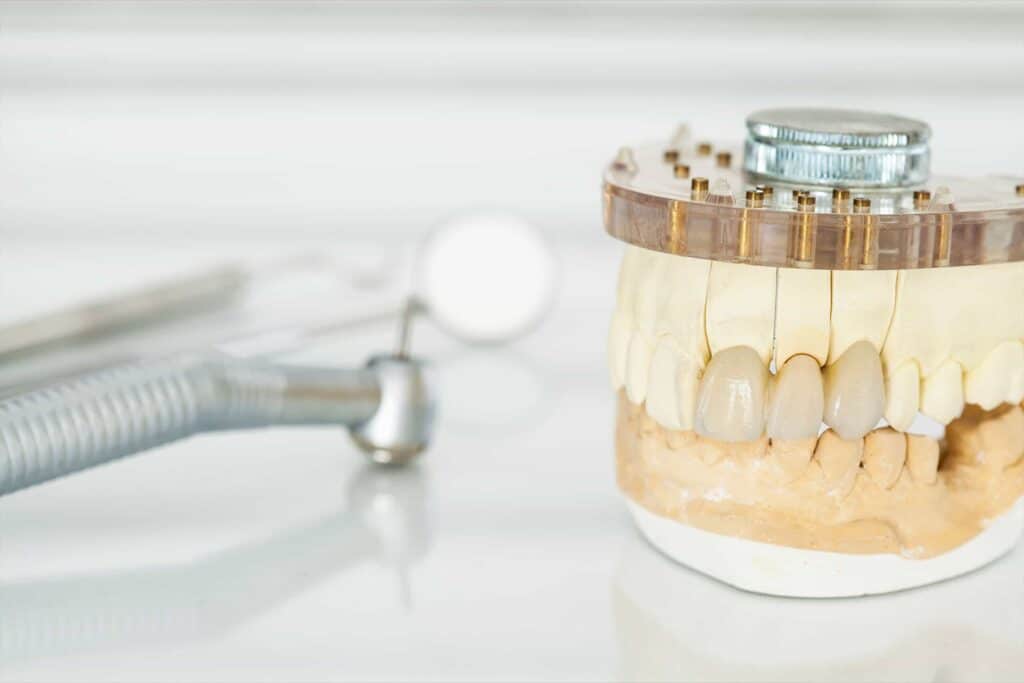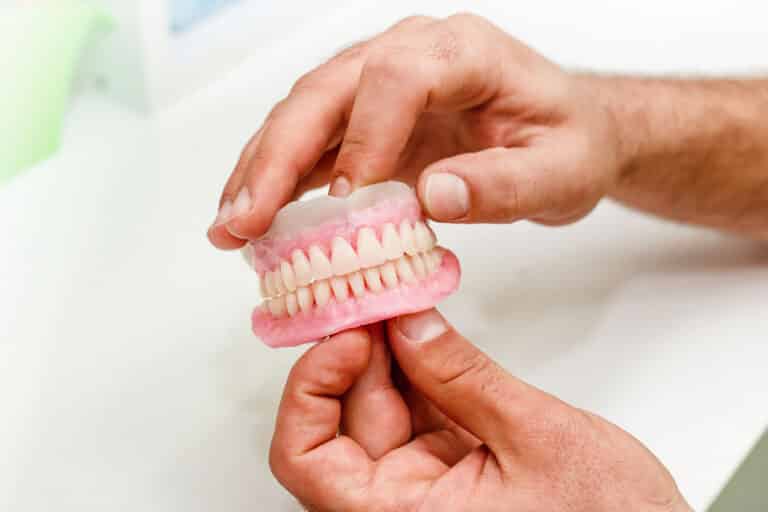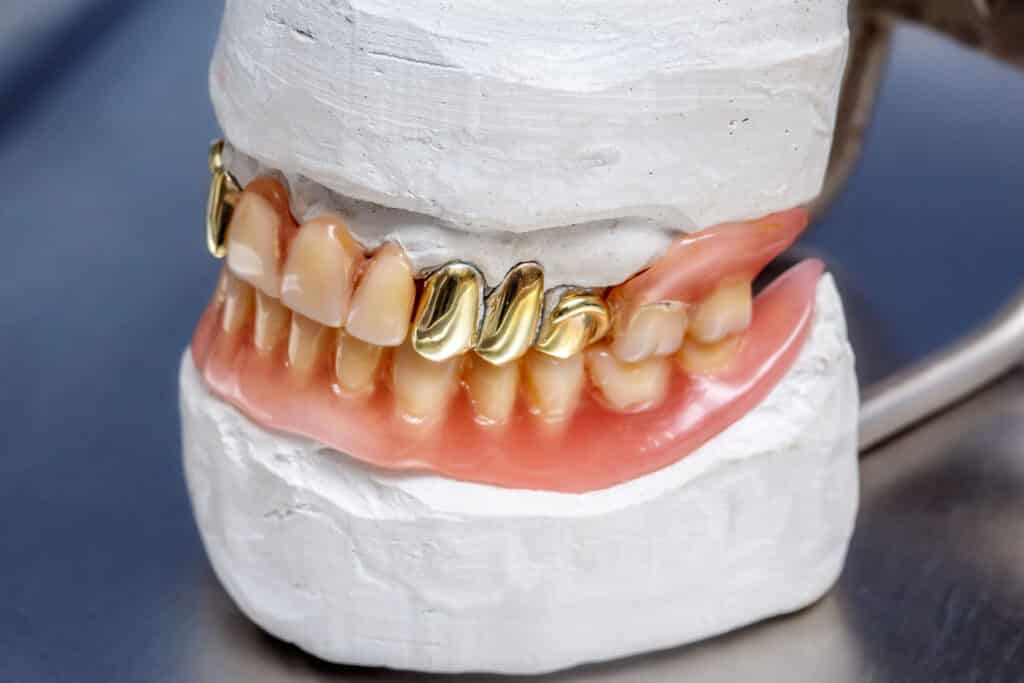Lockjaw is a painful condition of restricted mouth opening that makes speaking, eating, or maintaining proper oral hygiene difficult. Lockjaw, also known as trismus, affects one’s ability to open their mouths fully. Spasms in the jaw muscle make the jaws incredibly rigid, preventing movement in the TMJ (temporomandibular joint).
Lockjaw is not permanent in most cases, but it can become permanent and life-threatening if left untreated. In severe cases, lockjaw can affect the shape of the face and cause trouble swallowing.
What Causes Lockjaw?
Lockjaw has various causes. It’s essential to pinpoint the cause, so you’ll likely hear quite a few questions from your doctor, the first being if you may have come in contact with tetanus.
Trismus
Trismus is the uncontrolled inability to open the jaw or mouth, and it interferes with most daily activities, including chewing, swallowing, brushing teeth, talking, and in some cases, breathing. This restriction of movement of the jaws is what many people refer to as lockjaw and it can stem from many sources including trauma, inflammatory and infectious causes, neoplasms, neurogenic and dental issues..
Infections in the mouth, inner ear, jaw, or throat can cause lockjaw symptoms, or trismus. Common infections in these areas may include mumps, tonsillitis, or dental abscesses. Traumatic injury to the jaw muscles can also cause temporary lockjaw. From car accidents to falls, lockjaw could stem from any blunt force face injury.
If you have inflammation of the soft tissue in your mouth and jaw caused by certain medical conditions, lockjaw could become a problem. Examples include osteoarthritis, rheumatoid arthritis, and TMJ ankylosis.
A common scenario of trismus is an infected third molar or wisdom tooth. The infection and subsequent surgery to remove the pathologic teeth commonly restricts one’s ability to open without pain. Luckily this particular cause of trismus is easily reversible with time and proper treatment.
Additionally head and neck cancers, and the treatments that coincide with them, may also lead to lockjaw. It can affect as much as 38% – 42% of head and neck cancer patients due to fibrosis affecting the TMJ or chewing muscles1https://www.ncbi.nlm.nih.gov/books/NBK493203.
Tetanus
One of the rarer causes of lockjaw, tetanus, is a bacterial infection that results from anaerobic bacteria, or bacteria that grow in an environment that lacks oxygen. Clostridium tetani enters the body through an open wound or sore, and can produce toxins that can affect nerves. The bacteria can be found in soil, feces, and animal intestines. Although extremely rare, tetanus can be life threatening as tightening the muscles around the head and neck can interfere with breathing.
Stepping on a nail is a common cause of exposure to tetanus and will often result in a trip to the emergency room for a tetanus shot. Tetanus symptoms include muscle cramping, particularly around the jaw, trouble swallowing, fever and sweating. Seek immediate help if you suspect you have tetanus.
What are the Symptoms of Lockjaw?
Though you might not hear about it in a mainstream sense, lockjaw is more common than you think, and it’s essential to know the causes and lockjaw symptoms. Limited jaw opening, pain, and spasming jaw muscles are the main tell, but in addition, those with lockjaw may experience the following:
- Difficulty biting or chewing
- Headache
- Jaw pain
- Earache
- Difficulty swallowing
- Dryness or soreness in the mouth
As the condition progresses, symptoms may become more severe and lead to:
- Difficulty breathing
- Fever/High temperature
- Improper jaw opening/closing
- Death, if the airway closes due to severe tetanus
What Does Lockjaw Feel Like?
Lockjaw will often begin with pain or stiffness in the head and neck area, primarily the jaw with a limited ability to open/close. It can range from a dull, constant ache to sharp pain with inevitable muscle spasms. People with impending lockjaw may also spike a fever, and it will eventually become very painful or difficult to open the mouth.
How Long Does Lockjaw Last?
With treatment, most causes of lockjaw (trismus) lasts up to a few weeks. The length of the lockjaw depends on the cause or ailment causing the lockjaw. For instance, extraction of infected wisdom teeth typically leads to trismus. However rest, ice, and OTC anti-inflammatory medications will help resolve the trismus within a couple weeks. Some causes of lockjaw such as the different types of arthritis or scarring from radiation therapy may result in permanent symptoms, but mild cases typically resolve within a month once the cause is determined.
How Do I Get Rid of Lockjaw?
There are a few ways to lessen the symptoms of lockjaw to help heal the muscles and make life a bit more manageable. It is important to know the cause of lockjaw as the treatment will vary depending on the source.
- Applying a warm compress to loosen muscles. Heat typically is better for chronic, non-trauma induced lockjaw
- Applying cold packs to help with pain. Cold is better for acute, lockjaw associated with trauma such as wisdom teeth extraction
- Anti-inflammatory medication. Consult your doctor before starting any regimen of medication
- Jaw exercises and stretches
- Staying hydrated
- Antibiotics, if the cause is an infection
Before attempting any home remedies, you’ll want to speak with your doctor to determine the cause of your lockjaw. If left undiagnosed, the underlying issue may never be resolved or improper treatment may worsen symptoms..
How Can I Prevent Lockjaw?
There are a few ways to prevent your jaw from locking if you’re currently recovering from lockjaw. You might consider:
- Eating soft foods and taking smaller bites
- Avoid opening your mouth too wide
- Pay attention to your dental hygiene
- Reduce stress levels
- Wear a nightguard to reduce tooth grinding
- Get vaccinated for tetanus
- Heat and massage if you clench or grind your teeth
It would be best to formulate a plan with your physician or dentist.
When Should I Seek Medical Help?
As soon as you think you’re experiencing lockjaw symptoms or come in contact with potential C.tetani bacteria, you should seek medical help. Delaying help may make things worse, and untreated lockjaw may have progressively worse symptoms over time.
You can go to your closest emergency center for immediate treatment, and they can direct you from there. Speak with your doctor as soon as possible, and do not delay care. Lockjaw is a miserable experience and, in severe cases, life-threatening. Action is everything.
Was this post helpful?
References
- 1





